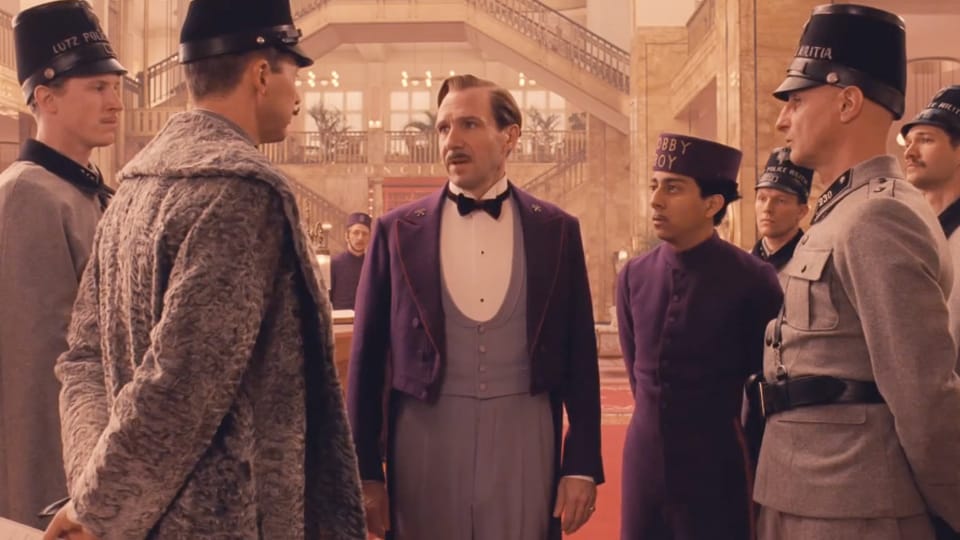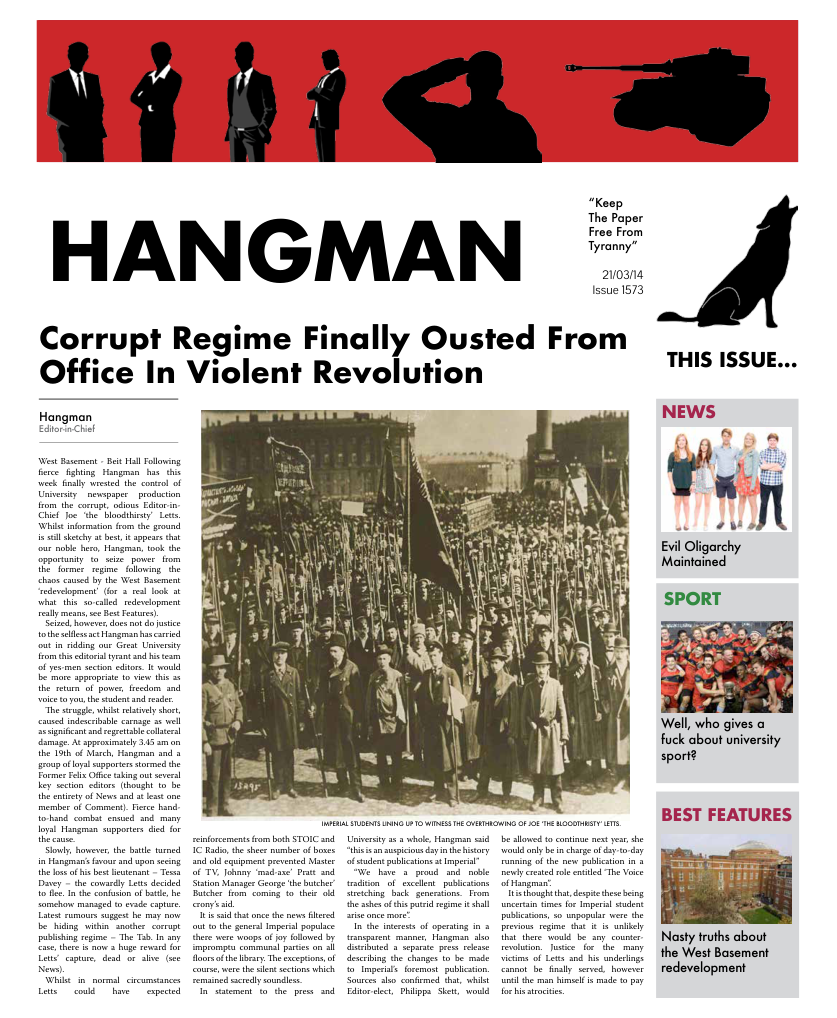A 5-star hotel experience
The Grand Budapest Hotel is a tricky film to review. Put quite simply: it’s a Wes Anderson film. In every conceivable way, as with all of his films before it, it is the essence of its predecessors mixed up, distilled, and delivered to the silver screen in a blast of pure, surreal, bittersweet joy.

The Grand Budapest Hotel
Director: Wes Anderson
Writers: Wes Anderson, Hugo Guinness, Stefan Zweig (inspired by the works of)
Starring: Ralph Fiennes, F. Murray Abraham, Mathieu Amalric, Adrien Brody, Willem Dafoe, Jeff Goldblum, Harvey Keitel, Jude Law, Bill Murray, Edward Norton, Saoirse Ronan, Jason Schwartzman, Lea Seydoux, Tilda Swinton, Tom Wilkinson
Runtime: 100 minutes
Certification: 15
Rating 5/5
_The Grand Budapest Hotel _is a tricky film to review. Put quite simply: it’s a Wes Anderson film. In every conceivable way, as with all of his films before it, it is the essence of its predecessors mixed up, distilled, and delivered to the silver screen in a blast of pure, surreal, bittersweet joy. Each film learns from what came before, each film adds to one of the greatest directorial catalogues around today. And Grand Budapest is no different. It has all the charming elements that could be expected, all the off-beat visuals and the delightfully exaggerated backdrops, and now it introduces a healthy dose of black humour. A more than healthy dose, truth be told. _Grand Budapest _seems to positively revel in the stuff.
And so what was meant to be a simple statement – that this truly is a Wes Anderson film, with all that that statement entails – becomes mildly complicated and severely over-long. But it is the truth. Fans of Anderson’s previous works – any of them, from the early days of Rushmore to the animation of Fantastic Mr Fox – will find plenty to adore here. Fans of cinema, of films, will find plenty to engage with (and then adore). With a cast this star-studded, a cast so star-studded it is quite possible the most star-studded cast to ever grace the screen, there’s no room, no chance, for bad acting. The writing is magnificent and as deliriously oddball as ever, and the mixture of (the ever-growing roster of) Anderson regulars (from Brody to Wilson, and back again via Murray) and Anderson debutants proves nothing short of incredible.
Foremost among the debutants, and the cast in general, is Ralph Fiennes, as the eponymous hotel’s concierge, Monsieur Gustave H. Displaying deft comic timing which he is (all to unfortunately) rarely allowed to unleash outside the arena of this film, he is the centrepiece around which the entirety of Grand Budapest – much like the hotel – revolves, and he more than rises to the occasion. Complete newcomer Tony Revolori proves himself one to watch, completely nailing the tone, while Saoirse Ronan completes the central trio as Agatha, proving immensely watchable with minimal screen time.
Minimal screen time for excellent actors is perhaps the only criticism that could really be levelled at Grand Budapest, but it’s more of a complaint than a criticism, and indulging it would only spoil the film.
Worthy of mention is the multiple framing narratives employed by the film; this is, for want of a more concise explanation, a story within a story, within a story within a story. The layers work in symmetry, each layer book-ending the one that follows (with a few cuts between the innermost two). Spreading the reach of the story beyond the inter-war years, lending it an even greater scope, they can almost feel a little superfluous, until realisation strikes. This is first and foremost the story of Monsieur Gustave H, and that – that is the point. It’s a story. Both blissfully innocent and bitingly self-aware. This is self-examination as film-making, and it’s simultaneously blindingly obvious and exceedingly subtle.
The Author and Mr Moustafa (the two narrators) at the film’s close, discuss M. Gustave. The age to which he belonged was gone before he could enter it, they say, but he “sustained the illusion with a marvellous grace.” And it’s so very difficult to be sure they don’t mean Anderson himself. Sustaining the illusion of these worlds he creates with a marvellous grace. It’s almost a perfect description.





